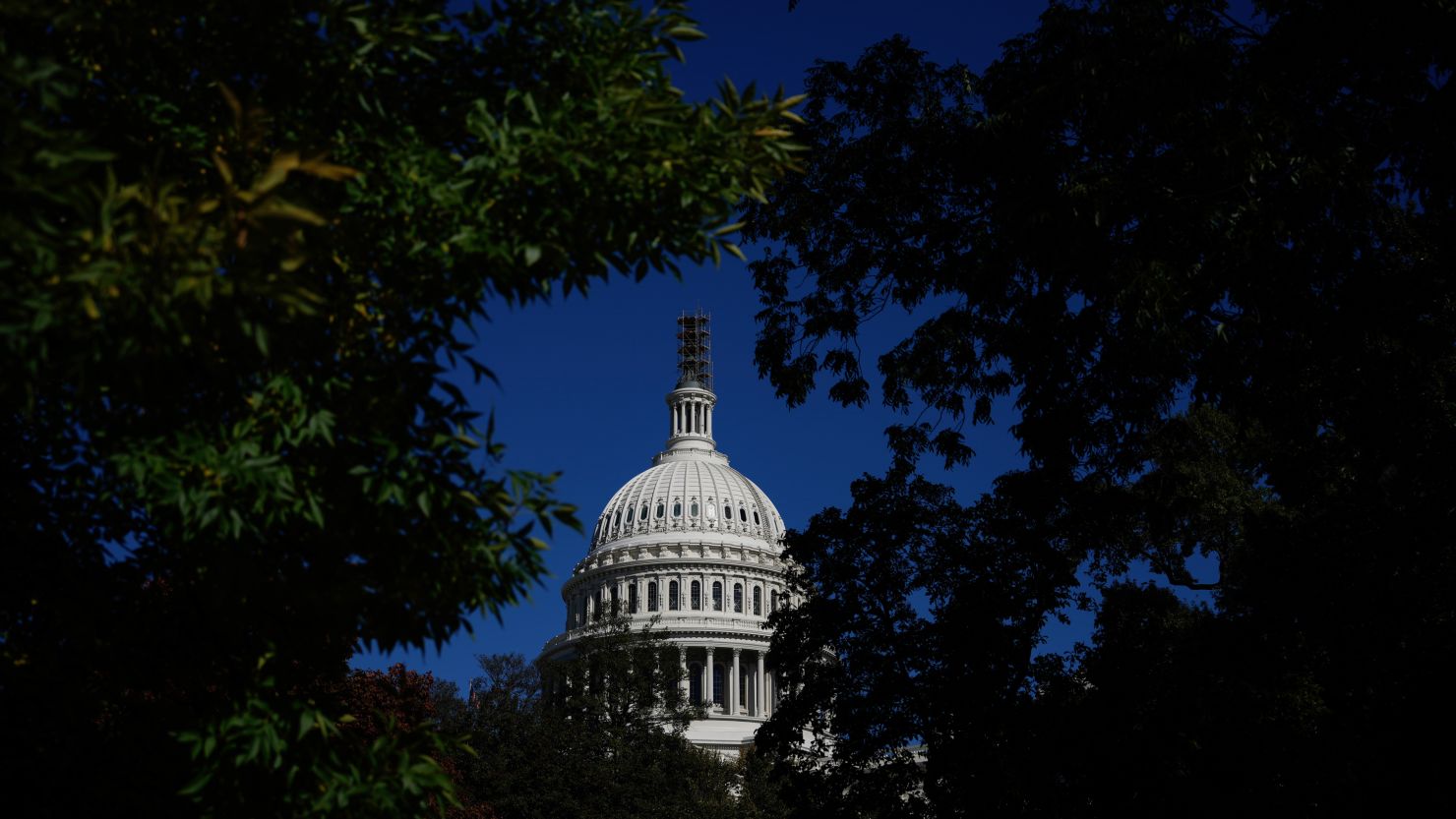Winning a majority party’s nomination for speaker of the House of Representatives usually elevates a lawmaker into the pantheon of American political leaders.
But such is the toxicity of the GOP three weeks after the ouster of Speaker Kevin McCarthy that the nominee expected to emerge on Tuesday may never get the top job.
The nomination is an assignment to what may be an impossible political mission to unite a conference that might never be reconciled. And even if the nominee wins the gavel, the next speaker has a reasonable chance of a tenure even shorter than McCarthy, who lasted nine months.
But this is about more than the plight of a Republican Party that often looks like it’s tearing itself apart. If the dysfunctional House GOP majority cannot get its act together, the US government could run out of funding before Thanksgiving week – and millions of Americans could pay the price.
As lawmakers returned to Washington on Monday, there was a growing sense of rising public frustration about a House that has been paralyzed for three weeks, as global crises boil and the shutdown deadline approaches.
Florida Rep. Vern Buchanan said his constituents “think all of us are incapable.” Buchanan, who is supporting fellow Sunshine State lawmaker Byron Donalds for speaker, added: “People are very angry and upset.”
The hopefuls lined up on Tuesday at the start of rounds of secret balloting that will produce a party nominee for speaker following the failures of House Majority Leader Steve Scalise and Judiciary Chairman Jim Jordan to replace McCarthy. But there is no guarantee the candidate who emerges from secret balloting will be able to get the required majority in the full House – given the extreme splits in the GOP between some of the far-right hardliners who helped eject McCarthy and more moderate lawmakers in battleground districts.
Because of their tiny majority, almost every Republican must back the nominee for him to become speaker – a longshot in a conference that is deeply divided. Ex-President Donald Trump has been fielding calls from top candidates seeking his endorsement but joked on Monday that only divine intervention could end the crisis.
“I said there’s only one person who can do it all the way,” Trump said in New Hampshire. “You know who that is? Jesus Christ. If Jesus came down and said, ‘I want to be speaker,’ he would do it.”
A new GOP speaker could find it impossible to unite the party
The fact there were so many candidates on Tuesday tells its own tale – namely that no one is strong enough to clear the field and whoever emerges may not have a strong base of support.
There are signs House Majority Whip Tom Emmer has been making progress, but as a member of a House leadership team distrusted by the right-wing House Freedom Caucus, his candidacy may suffer the same liabilities as those of Scalise and McCarthy. Another possible nominee is Donalds of Florida, a member of the House Freedom Caucus and one of the few Black Republicans in Congress. But Donalds may be too radical for moderate Republicans in districts that voted for President Joe Biden. There’s been palpable anger among such members – on whom the majority rests – that the lawmakers who voted out McCarthy have escaped punishment. A speaker from the far-right may be too much for them to accept.
But the identity of the new Republican speaker – when he eventually emerges (there’s not one woman among the current candidates) – may be less important than the dire situation he will confront. The House GOP has now spent three weeks failing to select a new leader – time that would have been better spent staking out a position on a new government funding deal needed to prevent the government from closing down in mid-November. Even if a new speaker is selected by the end of this week, there’s barely three weeks before the Thanksgiving break to get a deal with a Democratic-run Senate and the White House to avoid yet another governing debacle on the GOP majority’s watch.
The funding showdown will represent one of the most difficult tests ever for a new speaker. The likelihood that this leader will be a compromised figure at risk of losing his job at any moment at the head of a rebellious conference makes the position even more vulnerable.
As former House Speaker Newt Gingrich, himself a notoriously polarizing figure, said on Fox News this weekend: “They got big decisions coming down the road. There’s a very real danger that they’ll elect somebody and three of four or five weeks from now, you’re going to have a group of people blow up and decide to go back into the same mess.”
The risk of such a scenario is raised by the fact that any new speaker will face the same kind of impossible choices that confronted McCarthy when he narrowly averted a government shutdown last month. Knowing that he couldn’t satisfy extreme demands for spending cuts from hardliners with a Democratic Senate and the White House, McCarthy was forced to use some Democratic votes to pass a stopgap funding bill. And it cost him his job.
The growing pressure to fill the speaker’s chair might be a motivating factor for the GOP to finally end the stalemate. But the risk is that a compromise candidate will not have spent the years building a powerbase – inside the Capitol and on the critical fundraising circuit – and may therefore not be an effective leader of a fractious conference.
The fact that party leaders can only lose four votes and still pass a bill on party lines has highlighted the huge splits inside the conference and underscored that there is no reliable Republican majority for any legislation in the House right now.
Rep. Brett Guthrie of Kentucky, for instance, said the leadership crisis “shows that we’re not functioning as a majority. And when you lose that, you lose the ability to govern.”
How Americans could pay the price for the House’s dysfunction
The 2024 elections are still more than a year away, but the spectacle of a House brought low by its own divisions augurs poorly for the GOP. The party cannot enact its agenda, has no chance of showing voters it can be an effective majority, and cannot even use its power to jam Democrats into taking tough political votes that may come back to haunt them – as a majority party might generally do at this point in the political cycle.
But House Republicans are not just harming themselves. If the leadership limbo goes on much longer, the damage could spread countrywide and go global.
A government shutdown could harm countless Americans – including members of the armed services that could go without pay. And the paralysis in the House means that lawmakers cannot vote on sending emergency aid to Israel amid its war with Hamas. Biden’s request for a new $60 billion aid package for Ukraine is also not going anywhere. Domestically, vital appropriations bills on everything from farming to energy and foreign operations are stalled.
“I think House Republicans know that this is very detrimental to the country. Look at what is going on … over in Israel, what’s happening in Ukraine, and all the other things we know are happening in the world, including in our own country,” Rep. Larry Bucshon told CNN’s Brianna Keilar on Monday. The Indiana Republican also warned the party was hurting itself ahead of the critical funding showdown.
“I think it does put us at a disadvantage. We don’t have someone who is the speaker of the House to negotiate with the White House, with Senate Democrats who are in the majority. … It does put us at a political disadvantage.”
“Also practically for the country, it’s not a good thing.”







